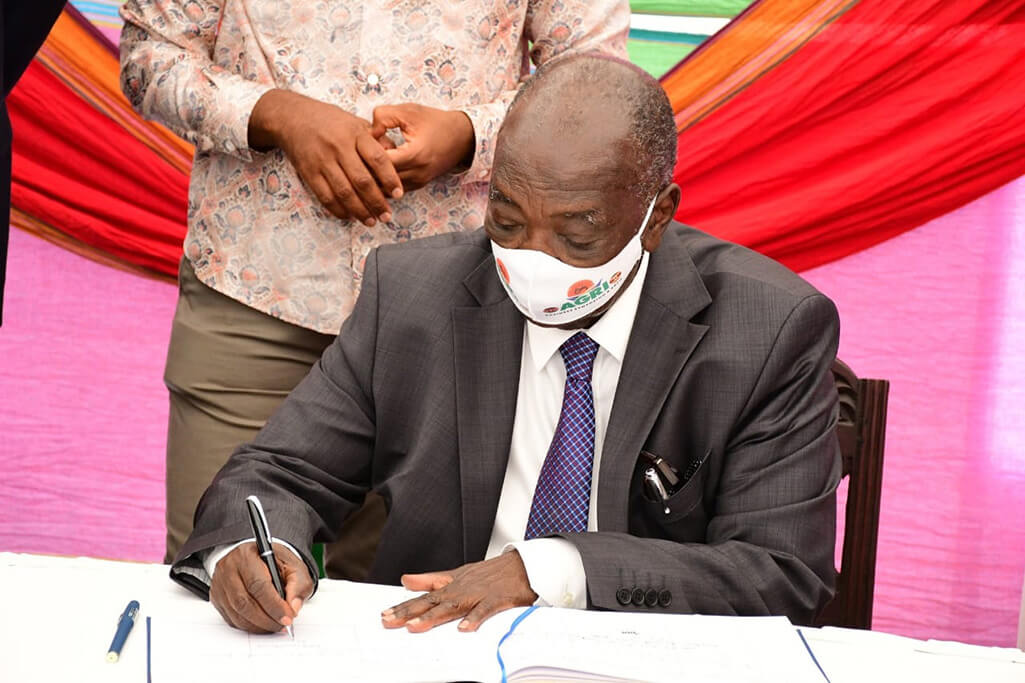
Our Projects are
Transforming African Trade
Quick Contacts
2nd Floor, Fidelity Insurance Centre Waiyaki Way, Westlands

As Uganda prepares to fully take advantage of the African Continental Free Trade Agreement (AFCFTA), the Uganda National Bureau of Standards (UNBS) has declared another 195 standards compulsory.
The declaration was made by trade minister, Francis Mwebesa in accordance with the Uganda National Bureau of Standards (UNBS) Act and the recommendation of the National Standards Council (NSC).
“78 of these standards are in the Chemicals and Consumer products sector, 41 are in the engineering sector, 42 are in the Food and Agricultural Sector and 34 are in the Management and Services sector,” Mwebesa said while making the declaration over the weekend.
He said among the new compulsory standards are the foam mattress standards, essential oils standards, Apiculture and Apiculture products standards, Mascara (cosmetics) standards, and requirements for transportation of dangerous products and many others.
AfCFTA is part of the African Union Agenda 2063 flagship initiative established to create an integrated continental market for goods and services and to support the movement of capital and natural persons.
Full implementation of the agreement is expected to reshape markets and economies across the region and boost output in the services, manufacturing and natural resources sectors.
Mwebesa said 20 national standards covering the disposable sanitary towels standards, knitted Polyester fabrics have also been amended to meet the current trade demands.
A standard is a document that contains rules, guidelines or characteristics of a given product. Standards are important because they guide the user on the required and appropriate designs of products, services and systems, which in turn improves product, service and systems’ quality.
Compulsory standards, on the other hand, are those that have safety implications for people and the environment, like standards to do with the processing of food and cosmetics.
According to the UNBS executive director, David Livingstone Ebiru, without harmonised standards, enterprises will not be able to break through the barriers that have stood in the way of local and bilateral intra Africa trade for the last many decades.
He said UNBS is now pushing for harmonization of standards at the continental level, to ensure seamless trade between nations, as they implement the trade agreement which came into force in January this year.
“As UNBS, we have decided to focus on strengthening local standards, in view of their role in the success of our local products on the international market,” Ebiru said.
He said the regulator has also started sending focused messages to Ugandan entrepreneurs to voluntarily adopt standards in their production processes, as they prepare for the continental and global markets.
UNBS publicist Sylvia Kirabo said locally, the uptake of standards is still low, and that is why it is important to focus on the promotion of standards, to support the growth of production in the various economic sectors.
She said to promote standards; the regulator has slushed certification fees, to increase the quality and visibility of Ugandan products on the international markets.
In 2018, Uganda revised its compulsory standards under the Distinctive Mark Regulations 2018, making it mandatory for all to bear a quality mark before they are supplied on to the market.
Read original article
Disclaimer: The views and opinions expressed in this article are those of the authors and do not necessarily reflect the official policy or position of TradeMark Africa.